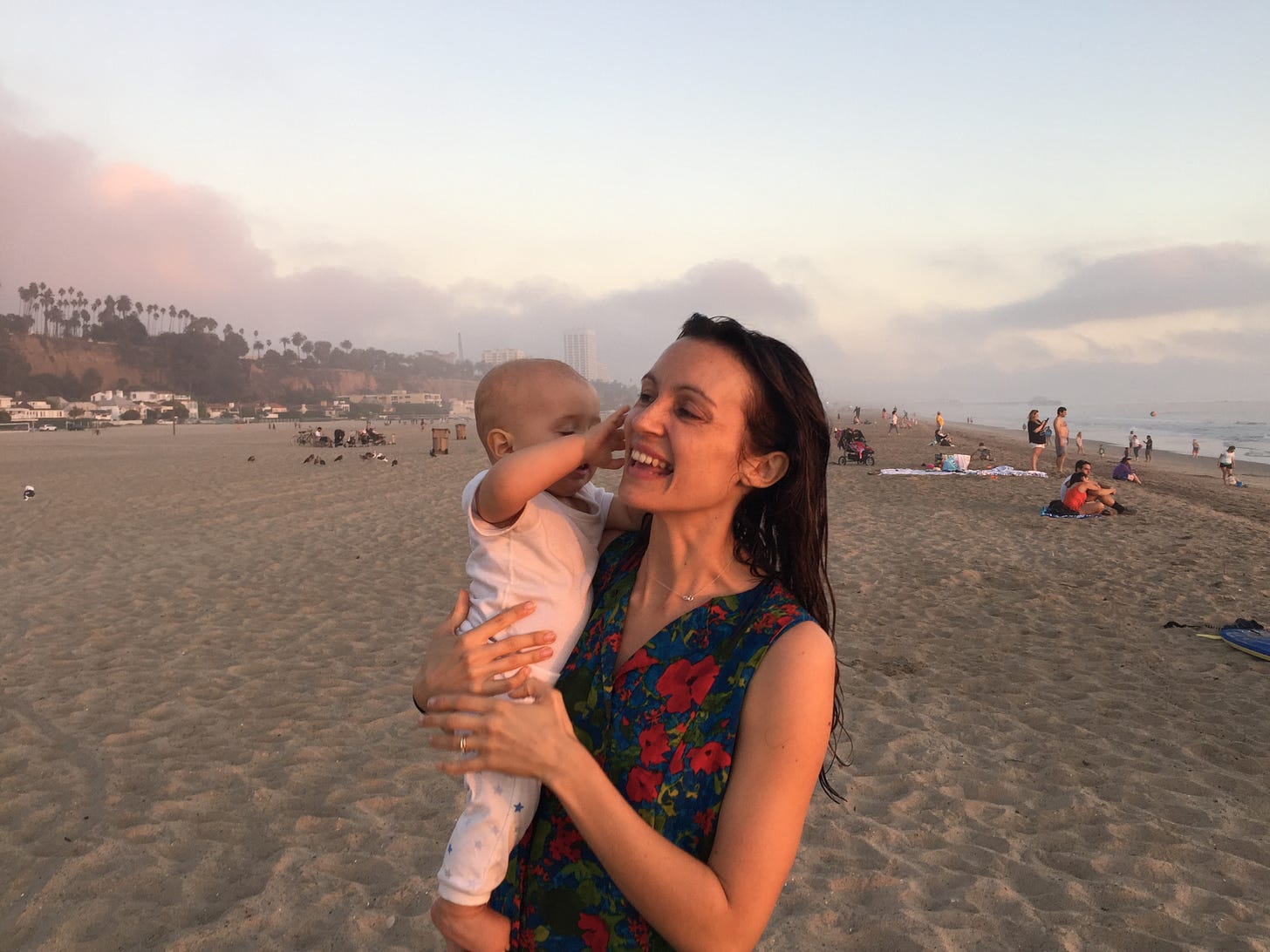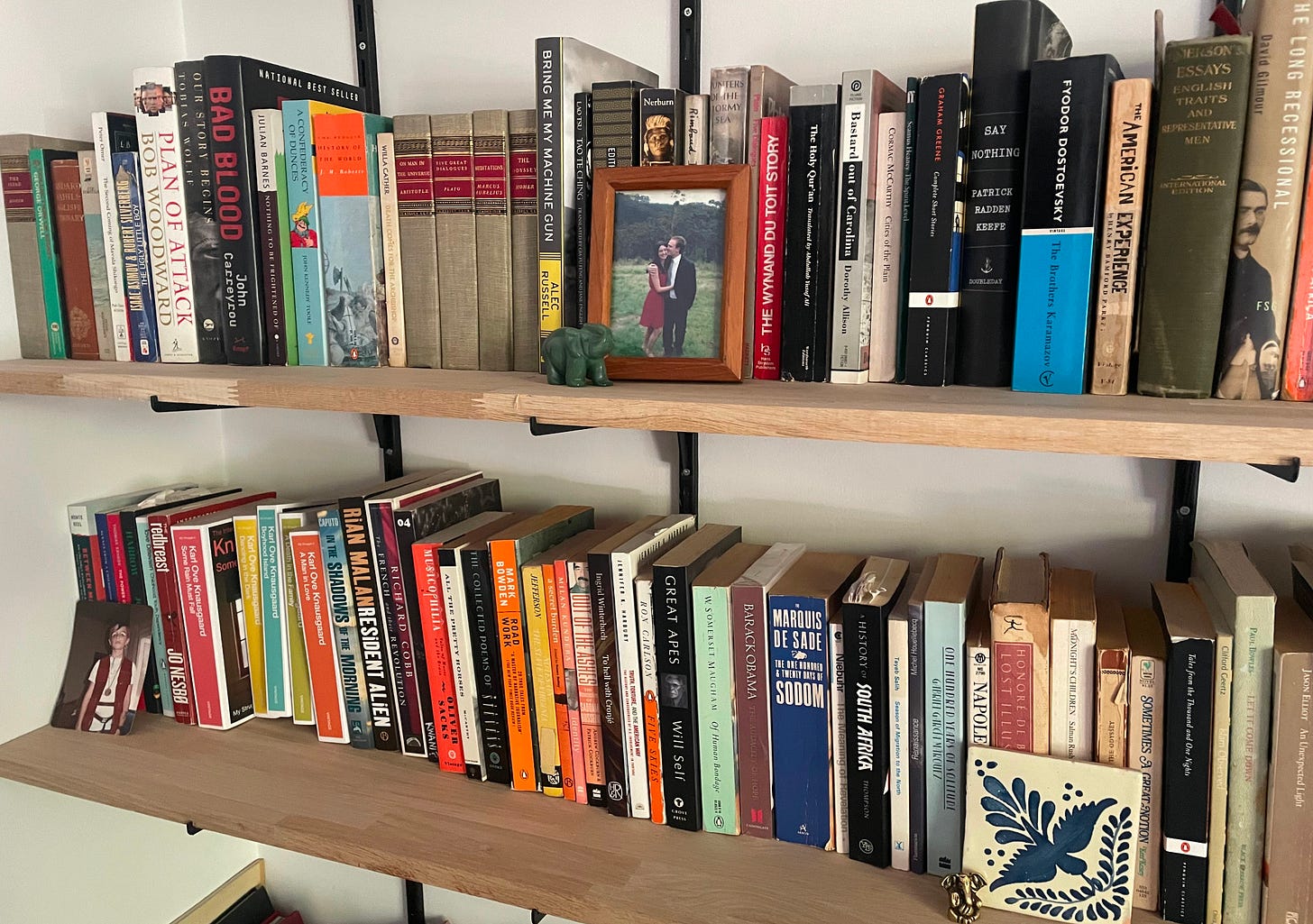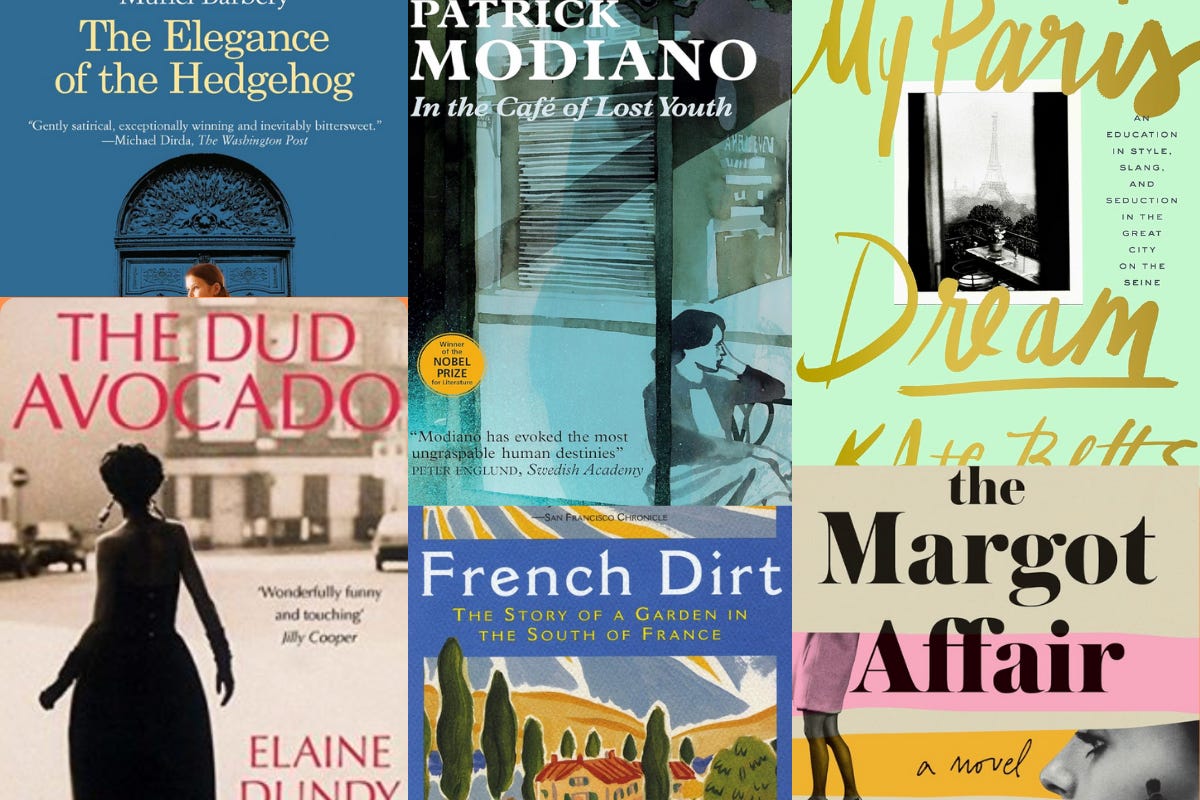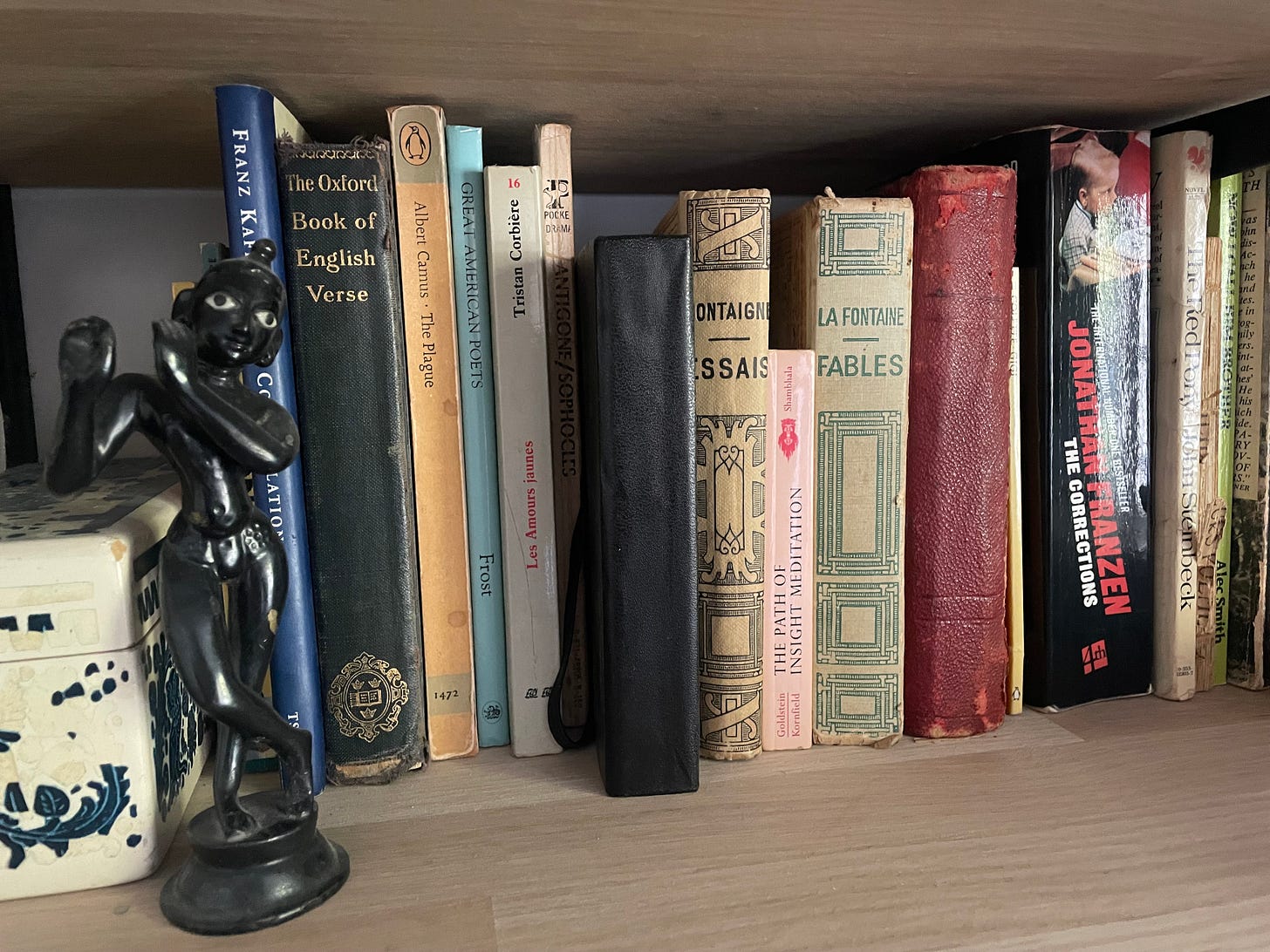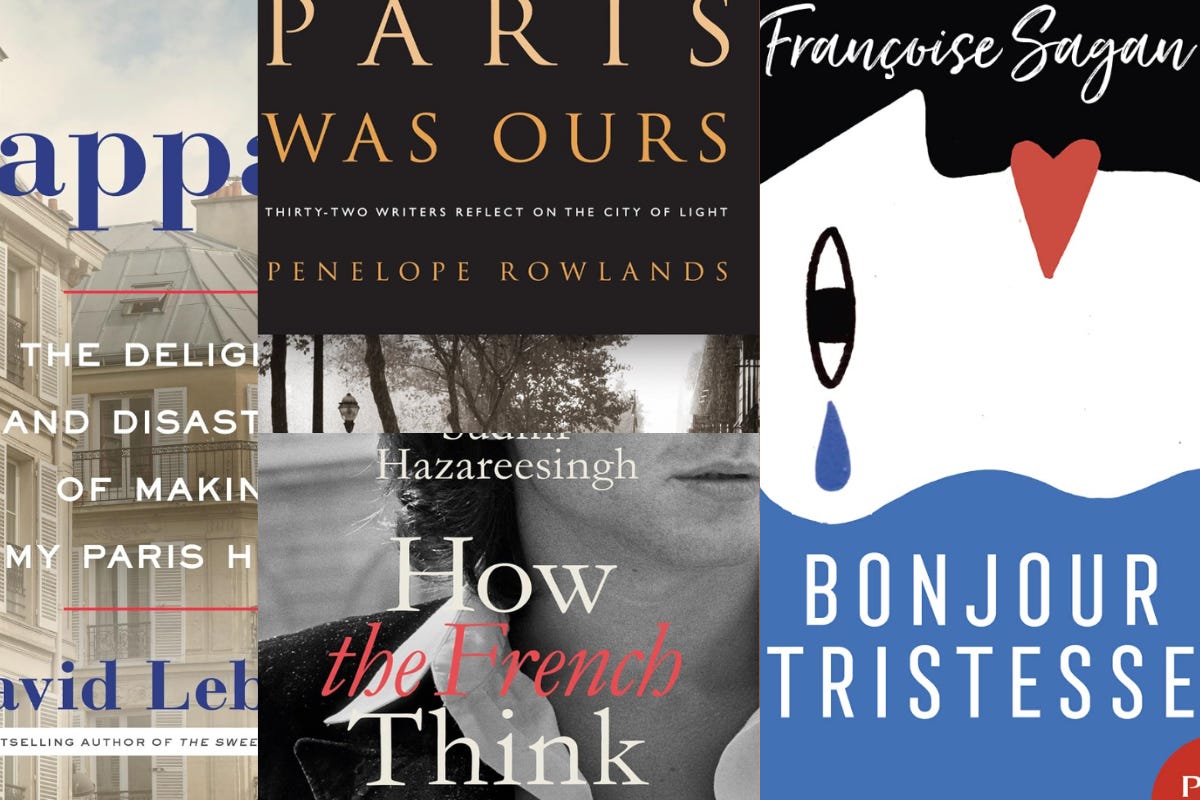One afternoon, when my son was maybe four months old, I had put him down for his lunchtime nap. We were living in a small townhouse in Santa Monica back then, a block from Wilshire and close enough to the beach that we could sometimes smell the salt air. I lay on our couch downstairs, unsure of how much time I’d actually get. He could wake up crying after 20 minutes, or sleep for two hours, it was anyone’s guess.
The refrain all new mothers hear is “sleep when the baby sleeps,” but when your nervous system is primed to listen for your baby’s cry at any given moment, sleeping on cue is next to impossible. On this particular day, I decided to read, something I had always loved to do, but that had fallen far down the priority list since baby arrived.
During a 2 a.m. breastfeeding session, I had ordered Bringing up Bébé, a memoir slash self-help book by American journalist Pamela Druckerman about raising her children in Paris. So I picked it up and was immediately drawn into the descriptions of French parenting.
“French parents don’t jump up at the first whimper. They wait to see if the baby can fall back asleep on his own. They call this la pause — it’s how French babies learn to sleep through the night by two or three months.”
I glanced up with some trepidation at the stairs leading to the room where my son was still sound asleep, unsure if I had the fortitude to resist racing up if he so much as croaked. Blessedly, he slept for two and a half hours hours that day, and I was able to get through a big chunk of the book.
That afternoon felt like a revelation. The book transported me to a world where motherhood included drinking espressos at sidewalk cafés and children dutifully eating their spinach. It has since been criticized for overgeneralizing French parenting (something I can attest to after living here for three years — French kids throw tantrums at the supermarket and love beige food too) and idealizing French culture.
But I still remember the escape the book offered me that day, the way it allowed me to inhabit a more pulled-together reality for a moment. That’s the point of a great book, isn’t it? To give you a window into another way of living, without leaving your sofa.
If you’re serious about one day moving to France, or if you simply want to escape for an hour or two to Paris, these books are a good starting point.
What book would you add to the list? Tell me in the comments!
The Dud Avocado by Elaine Dundy. The title alone! This is the perfect coming-of-age novel and such a fun read. First published in 1958, it follows a young American woman finding freedom in 1950s Paris. Think Fleabag but she’s 21 and broke, with a taste for martinis and poets, not hot priests. The book is swimming in memorable quotes, but this captures what maybe we all want to do right now?
“...I am so tired. I don’t want to have to wrestle with a horde of strangers. I just want to eat about a hundred million oysters and two tons of caviar and go swimming naked in champagne.”
My Paris Dream by Kate Betts. If you’re as excited as I am about the Devil Wears Prada sequel, read this to tide you over. Former Vogue editor Betts recounts the years she spent as a fashion journalist in Paris in the 1980s. This quote should be the guiding principle for anyone who’s considering a big move (at least it’s what I told myself when I decided to move to France):
“You can always come back,” my mother said. “Just go.”
The Margot Affair by Sanaë Lemoine. Margot is the secret child of a decades-long affair between a French politician and a famous actress. The book delves into what it means to carry a secret (or in Margot’s case to be the secret), and her yearning to be known. The book is full of lush descriptions of Paris:
“The Seine was dull that morning, flat and unmoving, a sheet of pewter dividing the city in two.”
In the Café of Lost Youth by Patrick Modiano. Like The Dud Avocado, this book is set in 1950s Paris, but it captures a lonelier, more sombre city. The book focuses on a mysterious woman, Louki, and the café where she disappeared.
“At night, I would walk through the empty streets, past shuttered storefronts and the yellow glow of the streetlamps, and I would imagine her still sitting at the Condé, untouched by time.”
French Dirt by Richard Goodman Anytime Under the Tuscan Sun is playing on the plane, I’ll watch it. I’m pretty sure Diane Lane’s adventures buying and renovating a villa in Italy were what first sparked my desire to live abroad. Less glamorous but still charming, French Dirt is an account of the year Goodman spent in a small French village, learning to garden and live simply. It’s a quick read, and has echoes of Peter Mayle’s A Year in Provence.
The Elegance of the Hedgehog by Muriel Barbery. The book follows a concierge of a bourgeois Parisian apartment building and her connection with a precocious young girl. It spent more than a 100 weeks on French bestseller lists, but be warned: reader reviews swing dramatically from 1 to 5 stars. If you’re familiar with Paris on a cloudy day, this should resonate:
“Outside, the gray light of Paris drifts through the windows, soft and indecisive.”
L’Appart by David Lebovitz. I turn to Lebovitz’s The Perfect Scoop any time I make homemade ice cream (his recipe for pear caramel ice cream is sublime). L’Appart, his memoir about renovating a Paris apartment, is probably not the book to read if you’re wanting the Paris of smoky cafés and gray rooftops slick with rain. Rather, this book gives you a warts and all look into what buying, and renovating, property in France is really like. David says it best:
“I had no idea what I was getting into at the time, and looking back, I’m still trying to figure how what happened, happened.”
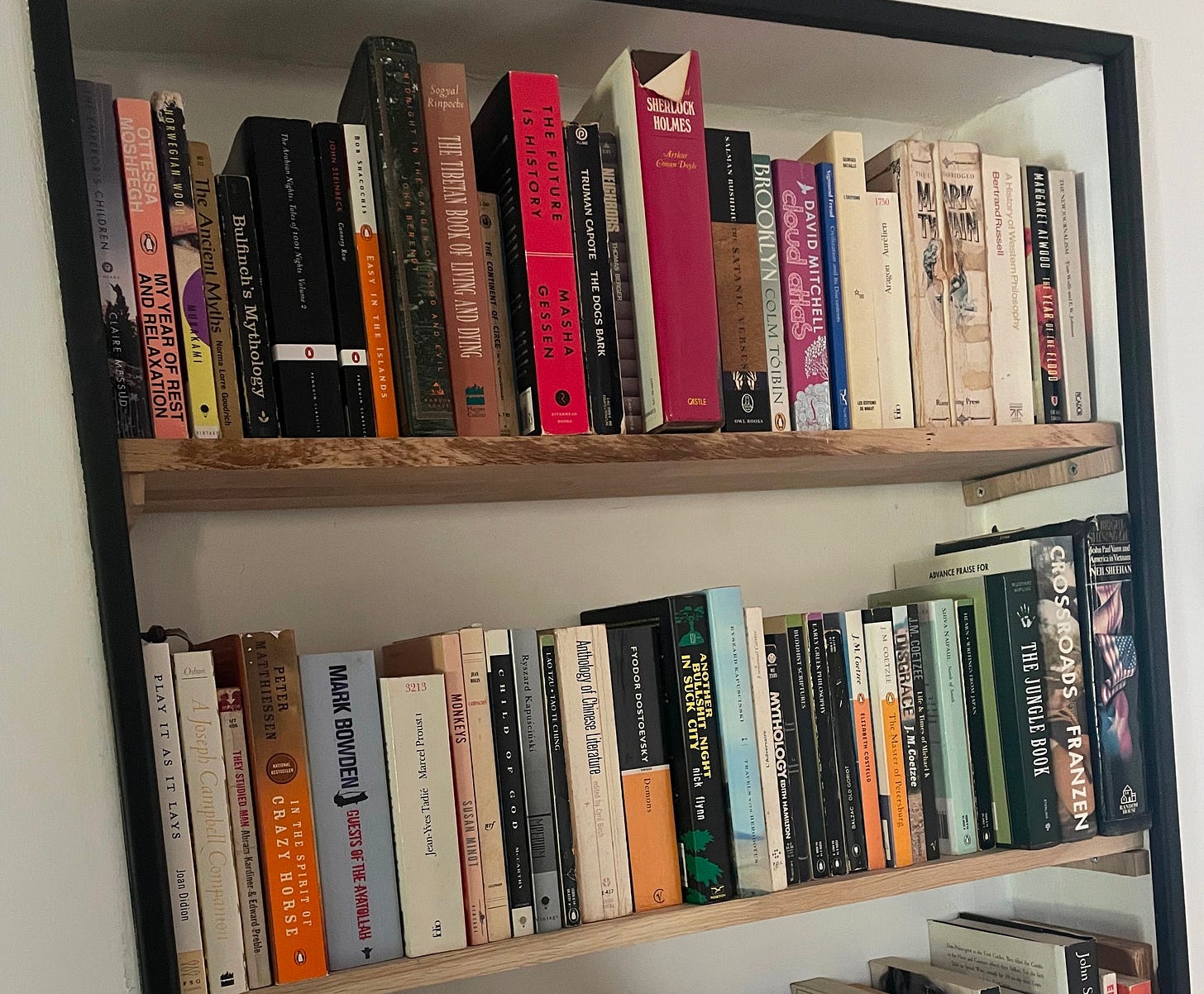
Paris Was Ours edited by Penelope Rowlands. A collection of essays from writers who made Paris home, whether briefly or permanently. It’s a great book to pick up and open up on any page. I love this nugget from Rowlands:
“We arrived with our fantasies and left with our stories.”
How the French Think by Sudhir Hazareesingh. This dense book examines the history of French philosophy and culture and how this has influenced France today. It took me a while to get through it and I had to put it down a few times, but it’s deepened my understanding of what makes the French tick. Some memorable quotes:
“In France, it is not enough to be right; one must also be elegant” and “The life of the mind in France is not confined to universities or salons; it spills into cafés, kitchens, and the streets.”
Bonjour Tristesse by Françoise Sagan. If sunshine and debauchery is more your jam, look no further than Sagan’s book set on the French Riviera, about an 18-year-old girl’s summer spent with her father by the sea. The book was recently turned into a film starring Chloë Sevigny. If you’ve spent time in the south of France in the summer, you’ll feel this line:
“In the evenings, the cicadas sang, and the world seemed suspended in golden light.”



